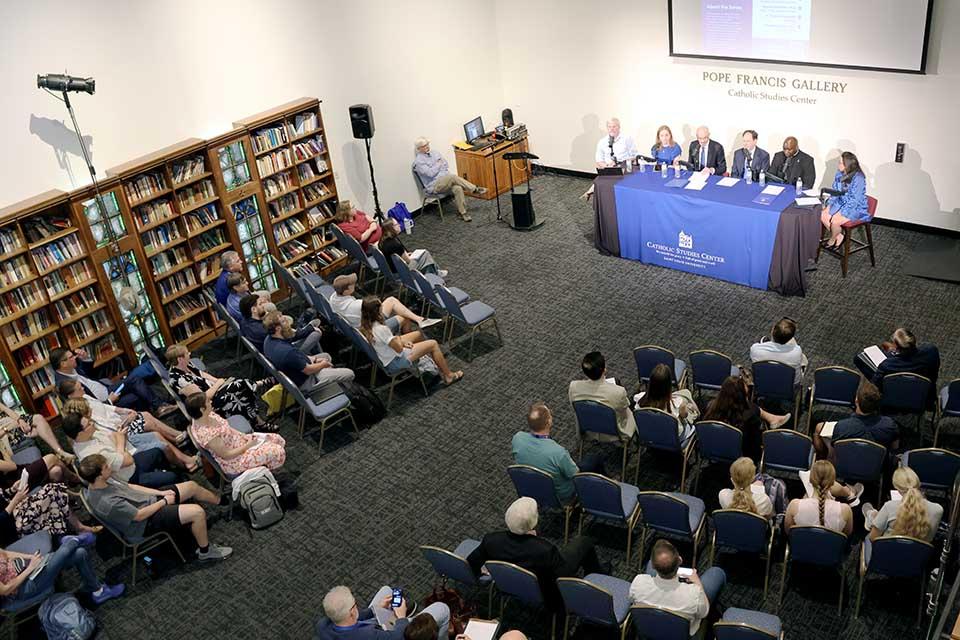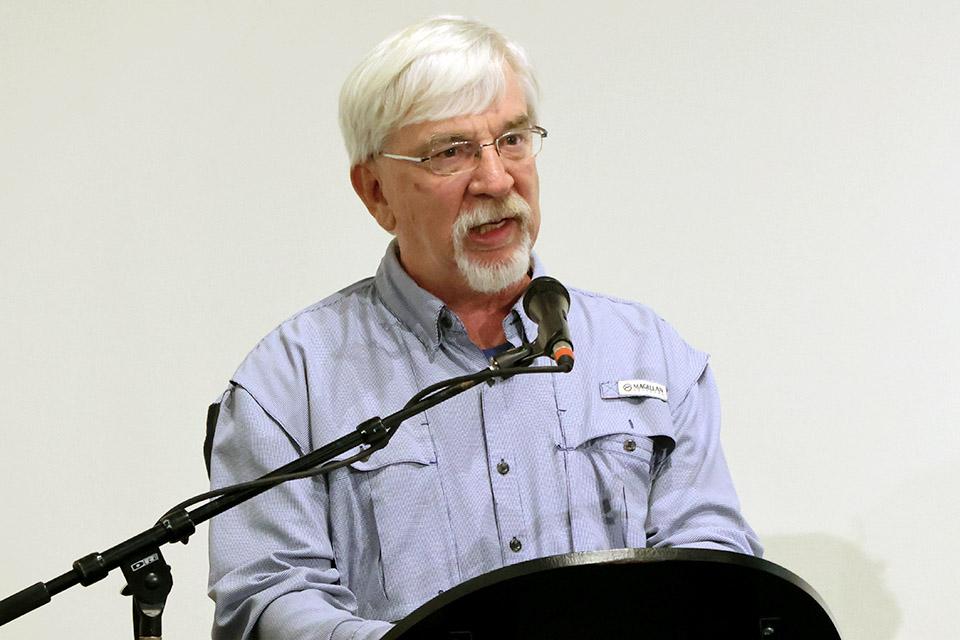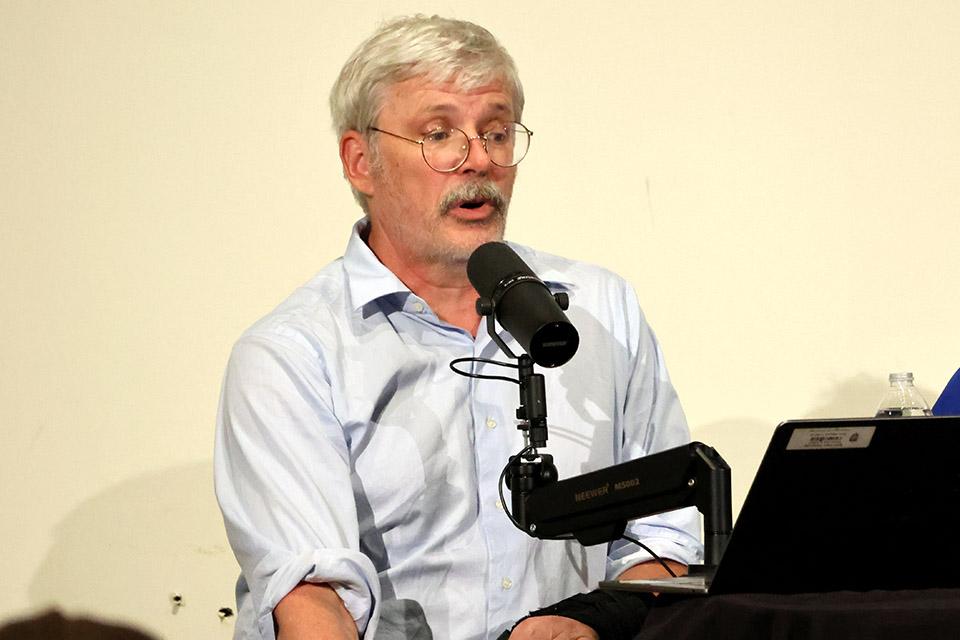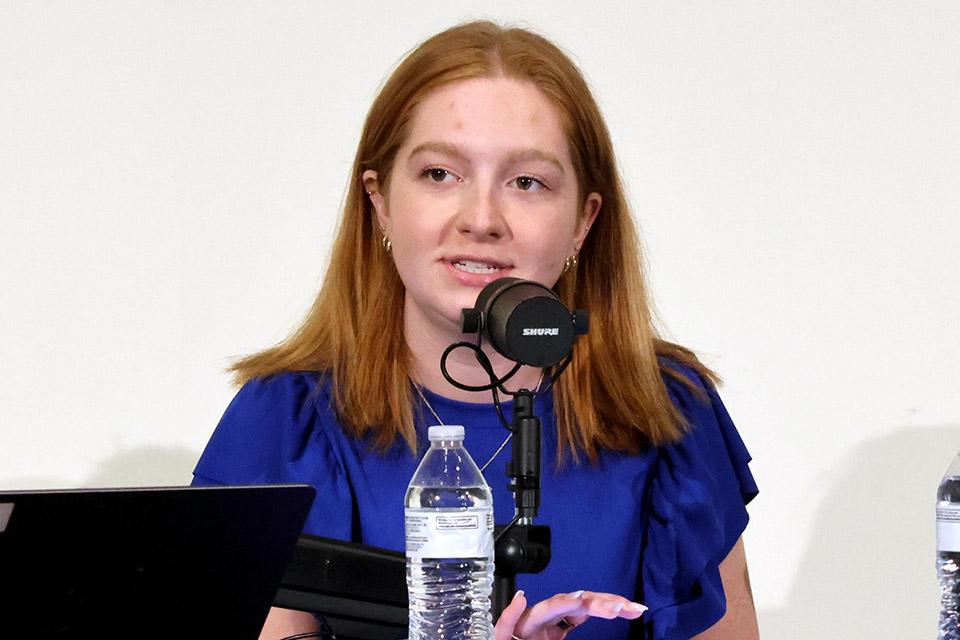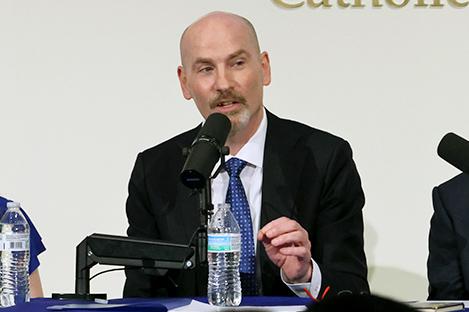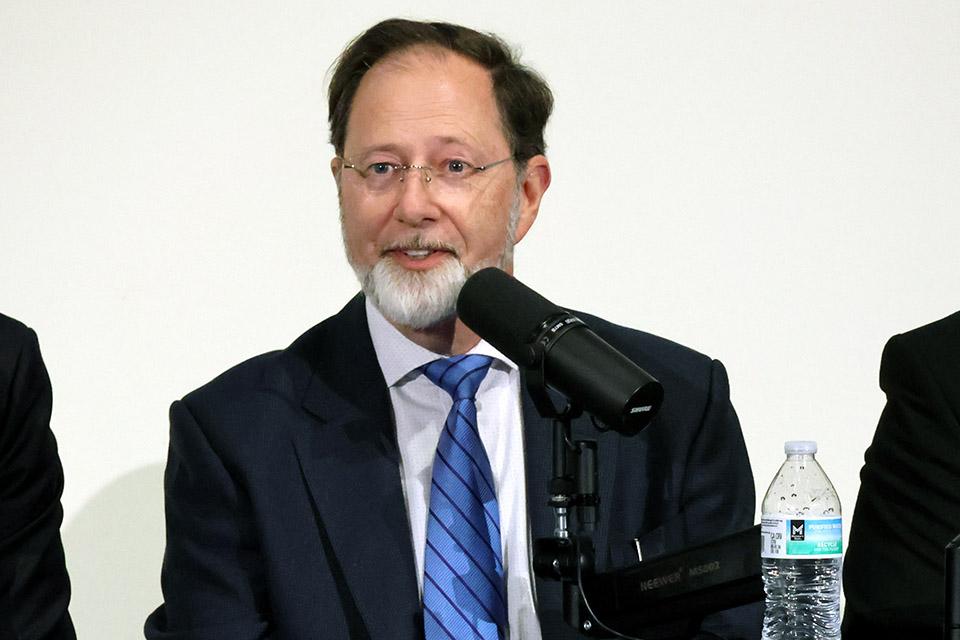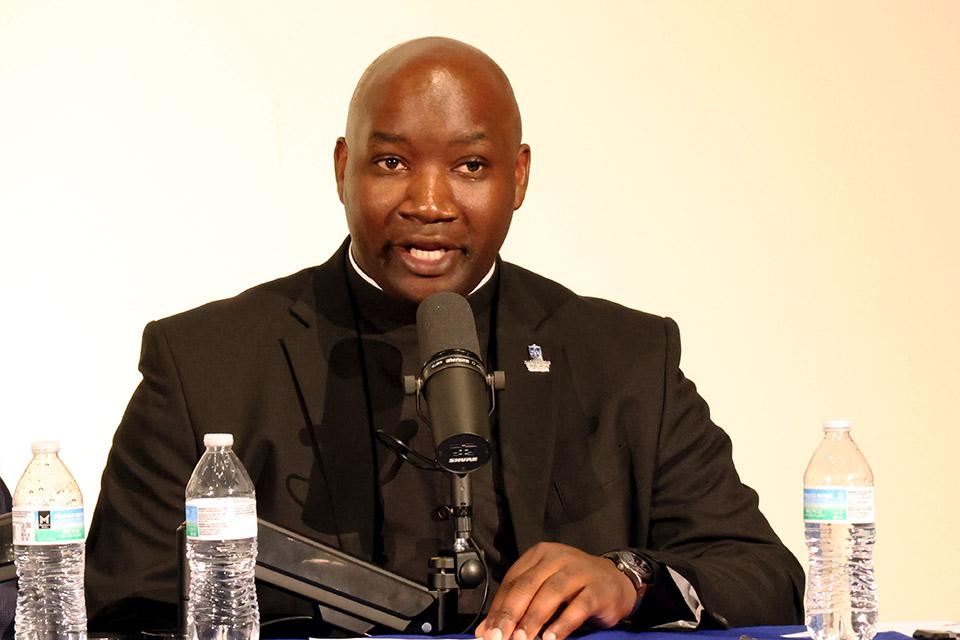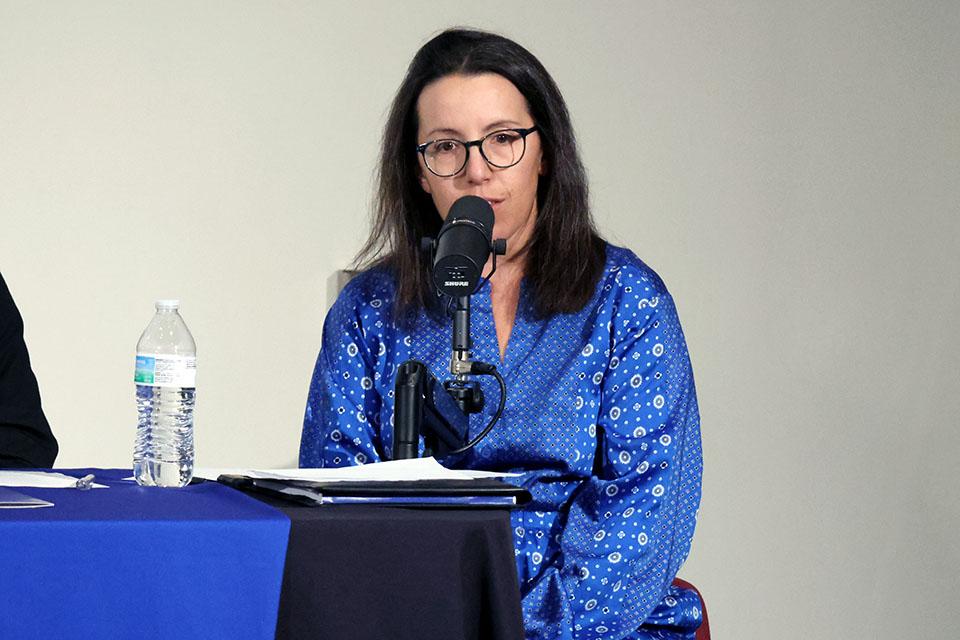SLU Thought Leaders Discuss AI and Its Impact on Education
Associate Professor of History Tom Finan, Ph.D., recalled his first experience with generative AI.
Just a few short years ago, he said he had heard about this emerging technology. In the classroom, he and some students fed ChatGPT some questions and weighed the results. This early experience marked his approach to AI — it’s a tool to use, but also to critique.
Finan shared these thoughts as part of a panel discussion, "AI and Its Impact on Education, Research, and the Quest for Truth.” On Monday afternoon, Finan was joined by SLU President Edward Feser, Ph.D.; Richard A. Chaifetz School of Business Dean Jackson Nickerson, Ph.D.; SGA President Grace Lopiccolo, Education doctoral student Fr. Thomas Sserwadda, and Catholic Studies Professor Jennifer Sanders, Ph.D.
The panel offered insight and shared their feelings about how generative AI works with education. Lopiccolo said, as a student, AI can be an easy tool to reach — it can summarize long texts of reading and make things simpler. However, she cautioned that education is not just about acquiring facts, and that students shouldn’t look for the easy route, but instead work to acquire knowledge.
Feser discussed the role that democratic deliberation should play in shaping the development of AI technologies. He challenged the audience to consider how SLU might help to envision or engage in deliberative processes that allow people to imagine the world they wish to create, and then how AI development could serve those goals.
Nickerson said he believed that it was important to be a leader in the field. He said in his view, the early adopters are the ones who set the paradigm for the future. He talked about how the Business School is hoping to be an early leader in using AI in the right way.
As someone who studies music, Sserwadda said it was important to remember the humanity that AI simply cannot replace. He said AI could not replace compassionate teachers or the feelings behind music.
Sanders cautioned that the rise of AI could lead to a “dark age.” She acknowledged that AI can be a tool, but said she was concerned about what could be lost if students no longer had to write or write as much.
This event was the second panel in the "Pope Leo Series on AI and the Social Teaching of the Church," hosted monthly during 2025-26 by SLU's Catholic Studies Center.
The new pope, by taking the name Leo, signaled that the Church would face today's transformative technologies, including generative AI, with the same courage and clarity with which Pope Leo XIII, the founder of modern Catholic social teaching, addressed social challenges during the period of the first industrial revolution when the important 1891 encyclical, Rerum Novarum, on the condition of the working class, was promulgated.
The goal of this series is to promote integration and interdisciplinary dialogue among and between SLU faculty (along with students, administrators, staff and alumni) about artificial intelligence and its impact through sustained shared reflection on the social teaching of the Church, using as a springboard a Vatican document recommended by the new pope: "Antiqua et nova."


















